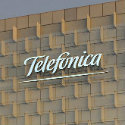
Telefónica Deutschland upset investors Wednesday morning by announcing plans to cut dividends and pump additional funds into 5G rollout, using China's Huawei and Finland's Nokia as radio access network (RAN) suppliers.
The selection of Huawei is risky because of political concerns about the Chinese vendor, whose opponents describe it as a Chinese government stooge and security threat. But Telefónica appears determined to press ahead, spying an opportunity to grab market share from Vodafone and market leader Deutsche Telekom, which has reportedly delayed any decisions about 5G vendors until the government has made its position clear.
"Telefónica Deutschland plans to work with Nokia and Huawei on its 5G access network, under the condition that the providers comply with security requirements which are to be determined by German regulators," said a spokesperson for the German operator in emailed comments.
Shares in the company had fallen 3% in early morning trading after it proposed a dividend of €0.17 ($0.19) for 2019 onwards, down from one of €0.27 ($0.30) last year. At the same time, Telefónica promised to invest between 17% and 18% of its revenues in capital expenditure to pay for the network deployment.
That marks a sharp increase on investment levels this year, with Telefónica indicating last month that it expects a capex-to-sales ratio of between 13% and 14% for 2019.
Executives sought to allay shareholder concern by forecasting a 5% increase in sales by 2022. "With the new decade and the start of 5G, a growth phase is breaking for our company," said CEO Markus Haas, arguing that additional investments would allow Telefónica to capture market share, especially in rural areas and with business customers.
Haas says Telefónica can achieve this goal while it also increases the margin for operating income before depreciation and amortization (OIBDA), which came in at 24.6% last year.
In a financial statement aimed at investors, the company said that "continued efficiency gains" would help to boost profitability, without providing further details. Last year, it cut more than 4% of jobs, leaving it with exactly 8,868 employees at the end of December 2018, according to its last annual report.
The market reaction suggests investors have yet to be convinced by the 5G plan. At €2.63 ($$2.91) this morning, Telefónica's share price was up from a 12-month low point of €2.22 ($2.46) in mid-August, but it remains well below its level of €3.47 ($3.85) this time last year.
At roughly €7.3 billion ($8.1 billion), sales were unchanged last year, compared with 2017, and they have fallen from about €7.5 billion ($8.3 billion) in 2016, according to financial statements published by the Telefónica Group. In November, Telefónica Deutschland guided for "broadly stable" full-year revenues for 2019.
While its OIBDA margin remained the same last year as in 2017, the German operator has continued to rack up a net loss because of high depreciation and amortization costs. Last year, it recorded a net loss of €230 million ($255 million), down from €381 million ($422 million) in 2017.
Want to know more about 5G? Check out our dedicated 5G content channel here on
Light Reading.
Revealing details of its 5G investment plans, Telefónica said it would aim to complete rollout in Berlin, Hamburg, Munich, Cologne and Frankfurt by the end of 2021. A year later it is targeting coverage of 30 cities and 16 million people.
It justified its choice of Huawei and Nokia by describing them as "proven strategic partners," indicating they already supply RAN equipment for its existing network.
Switching to a less controversial supplier than Huawei might have entailed additional costs. The UK's Vodafone, which also relies on Huawei, says a 5G ban on Chinese vendors would force it to replace 4G gear as well, because equipment from different suppliers is not compatible.
Telefónica has yet to choose a 5G core network supplier but aims to select one next year, said the company's spokesperson.
Today's news comes days after Deutsche Telekom was reported to have put any decisions about 5G suppliers on hold until Germany's government reaches a firm decision on whether to ban Huawei. "In light of the unclear political situation, we are not currently entering into any 5G contracts -- with any vendor," it told Reuters.
Related posts:
— Iain Morris, International Editor, Light Reading
Read more about:
EuropeAbout the Author(s)
You May Also Like



.jpg?width=300&auto=webp&quality=80&disable=upscale)








